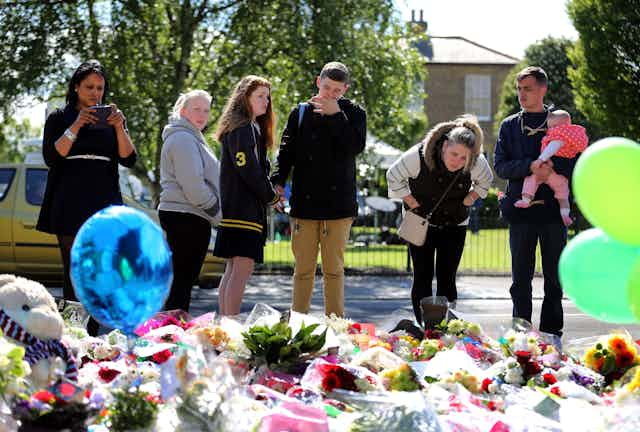Last night in South East London, the deafening frequency of the sirens was reminiscent of London after the 7th July bombings, as the police cars and vans hurtled down the New Cross Road towards Woolwich. It lasted deep into the night. Against this piercing backdrop the streets remained unnervingly quiet and without people.
Most residents stayed inside watching the news of violence in familiar places unfold on screens via Twitter, Facebook and often last of all the television news. It was as if south-east London was holding its breath.
Today’s newspaper headlines about the murder did not challenge the violence, rather the news coverage is deeply complicit with its politics. The colour-enhanced photographs taken from the eye witness phone footage were the instruments of the chilling and gruesome spectacle. Londoners of all shades and backgrounds were confronted by it as they stood next to each other on the train platform or in the Underground.
“See the way the media used ‘Caribbean’ and ‘Nigerian’ to describe them,” a young black Londoner said to his friend. “You know what coming next don’t you?”
Blurring the categories will create a wider range of targets for the backlash. “It’ll be the Muslims first though. The EDL have already attacked mosques in Woolwich and Essex,” he concluded.
The violence and the reactions to it will damage London’s multicultural society, but not fatally. I am sure plenty of commentators will line up to rehearse another chorus of the familiar pronouncements about the “death of multiculaturalism”. We’ve seen this all before but the reality of life in the city is paradoxical.
London is both the stage for divisions and violence and also a meeting place where those differences are routinely bridged and made banal.
The political response has been little more than a war of clichés and well-rehearsed condolences. David Cameron spoke of the endurance of the “indomitable British spirit” and “the belief in freedom, in democracy, in free speech, in our British values, Western values”. I do not minimise the violence or condone the butchery in Woolwich. But this has happened in a moment where British life is increasingly militarised.
The military has had a more prominent presence in everyday life in British society, from their presence at sporting occasions to the perennial collections for Help for Heroes. These become local traces of the wars that are being fought afar in Afghanistan and Iraq and now targeted as a result.
Politicians will deny that there is any connection between war and the murder. Equally, connections between the reactions to these tragic events and a re-invigorated racism will be steadfastly rejected. In both cases what we are seeing is a manifestation of the social damage of war erupting in the very ordinary spaces of British life.
The blood-stained headlines will not be easily forgotten but they will inevitably become yesterday’s news, and the rhythm of multicultural life in south-east London will find its balance again.

